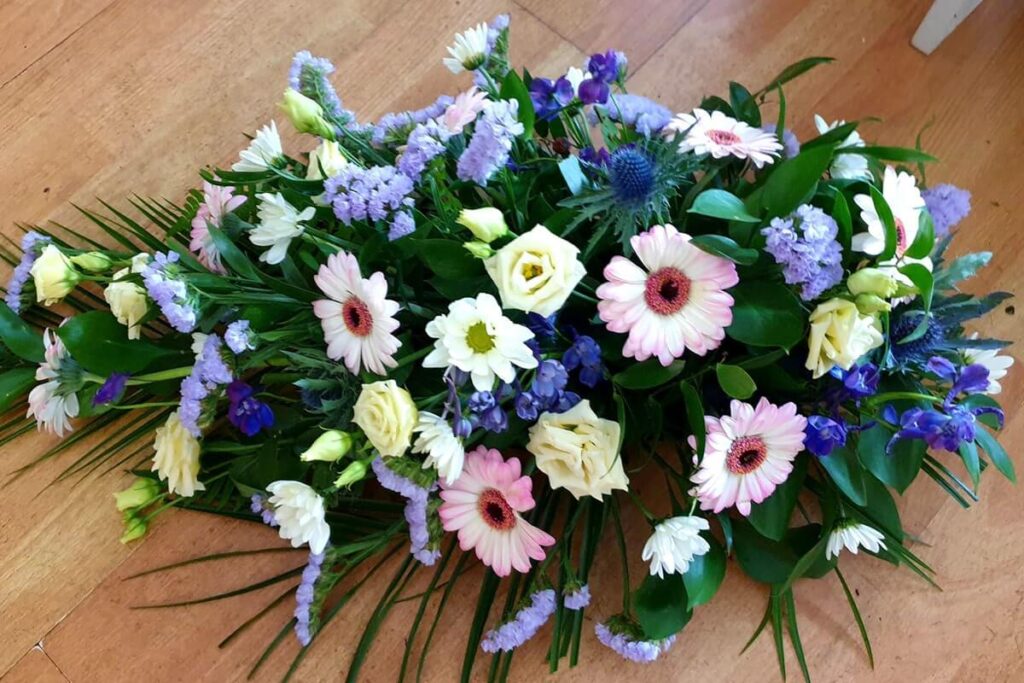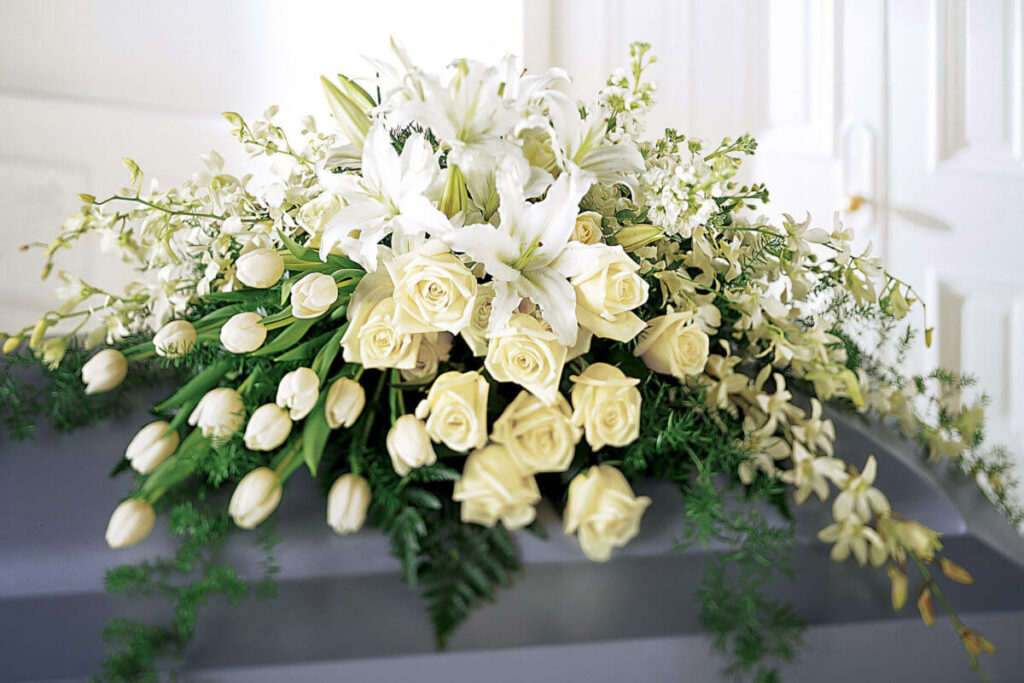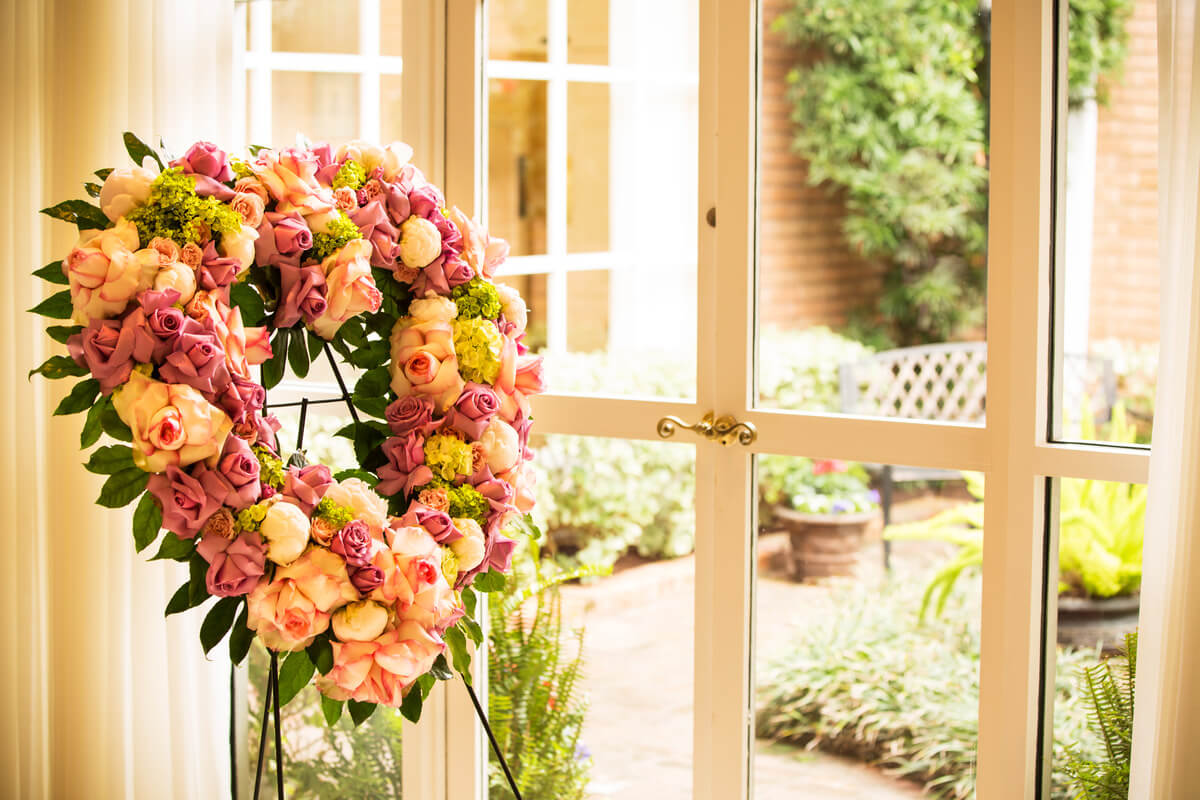The loss of a loved one is a difficult time, and expressing your sympathy can provide comfort to those who are grieving. One meaningful way to show your condolences is by sending funeral flowers. However, choosing the right funeral flowers can be a daunting task. In this article, we will explore the symbolism behind funeral flowers, cultural considerations when selecting them, how to choose appropriate flowers, etiquette for sending flowers, and alternatives to traditional funeral flowers.
Understanding the Symbolism of Funeral Flowers
Flowers have long been used to convey emotions, and different types of flowers hold various meanings. By understanding the symbolism of funeral flowers, you can choose arrangements that are meaningful and appropriate.
Funeral flowers serve as a poignant tribute to the deceased, offering a way to express love, respect, and sympathy. The careful selection of flowers can convey a message of remembrance and honor, providing comfort to those who are grieving.

The Meaning Behind Different Types of Flowers
Each flower has its own significance. For example, roses are often associated with love and can symbolize eternal beauty. Lilies, on the other hand, represent purity and rebirth. Chrysanthemums denote honor and respect in many cultures. Taking the time to research the meanings behind different flowers can help you select appropriate arrangements for the funeral.
Carnations are another popular choice for funeral flowers, symbolizing admiration and affection. Orchids are often chosen for their delicate beauty and represent everlasting love. Sunflowers can convey a message of adoration and loyalty, making them a meaningful addition to funeral arrangements.
Color Symbolism in Funeral Flowers
In addition to the type of flower, the color of the blooms can also convey specific messages. White flowers are commonly associated with purity and innocence, making them a popular choice for funeral arrangements. Red flowers, on the other hand, can symbolize love and passion. Consider the cultural and personal significance of color when choosing funeral flowers.
Yellow flowers can represent friendship and joy, offering a message of support and warmth during a difficult time. Purple flowers are often chosen to symbolize dignity and respect, honoring the memory of the departed. The thoughtful combination of different flower types and colors can create a meaningful tribute that reflects the personality and spirit of the individual who has passed away.
See Also: Top 10 Mother’s Day Flowers to Show Your Love
Cultural Considerations When Choosing Funeral Flowers
Cultural customs and traditions play a crucial role in funeral ceremonies. Understanding these practices can help you select funeral flowers that are respectful and appropriate.
Funeral flowers have been a longstanding tradition across various cultures, serving as a way to honor and pay tribute to the deceased. The choice of flowers can convey different meanings and sentiments, making it essential to consider the cultural background of the individual or family.
Western Traditions and Funeral Flowers
In Western cultures, funeral flowers are often sent to the funeral home or the family’s residence. Common choices include flower arrangements, wreaths, and sprays. White lilies and roses are frequently used in Western funerals, symbolizing purity and remembrance.
Additionally, different flowers hold specific meanings in Western traditions. For example, carnations are often used to express love and admiration, while gladioli symbolize strength of character. Understanding these symbolic meanings can help in selecting the most appropriate flowers to convey your condolences.

Asian Customs and Funeral Flowers
Asian cultures have their own distinct customs when it comes to funeral flowers. For example, in Chinese culture, white flowers are often associated with funerals and are used to symbolize purity and mourning. Chrysanthemums hold special significance in Japanese funerals and are seen as a symbol of grief and remembrance. Always research and respect the customs of the specific culture you are sending funeral flowers to.
Moreover, the arrangement and presentation of funeral flowers can vary widely among Asian cultures. In some regions, such as Korea, it is customary to present money in white envelopes along with the flowers as a sign of respect and support for the grieving family. These intricate customs highlight the importance of understanding the nuances of each culture’s funeral practices.
How to Choose Appropriate Funeral Flowers
When selecting funeral flowers, it is important to consider the deceased’s preferences and the wishes of the grieving family.
Funeral flowers serve as a meaningful tribute to honor the life of the departed. They can convey emotions, offer comfort, and symbolize love and respect. Choosing the right flowers can provide solace to the bereaved and create a beautiful memorial for the deceased.
Considering the Deceased’s Preferences
If you were close to the deceased, think about their favorite flowers or if they had any specific floral preferences. By choosing flowers that they loved, you can create a personalized tribute that reflects their unique spirit.
Each flower carries its own significance and symbolism. For example, lilies are often associated with purity and rebirth, while roses symbolize love and remembrance. Understanding the meanings behind different flowers can help you select arrangements that convey the appropriate message and pay a heartfelt tribute to the departed.
Taking into Account the Family’s Wishes
Consult with the family or close friends of the deceased to ensure that your choice of funeral flowers aligns with their wishes. They may have specific preferences or requests for floral arrangements, or they may prefer donations to a specific charity in lieu of flowers. Respecting their wishes is crucial during this sensitive time.
It is also important to consider cultural and religious customs when selecting funeral flowers. Different cultures have varying traditions regarding appropriate flowers for funerals. Some cultures may prefer white flowers as a symbol of purity and peace, while others may opt for colorful blooms to celebrate the life of the departed. By understanding and honoring these customs, you can show your respect and support for the grieving family.
Etiquette for Sending Funeral Flowers
Understanding the appropriate timing and messages when sending funeral flowers is important to ensure your condolences are conveyed respectfully.
Funeral flowers have a long-standing tradition of offering comfort and solace to those mourning the loss of a loved one. The beauty and fragrance of flowers can symbolize the love and respect you have for the deceased and their family during this difficult time.
When to Send Funeral Flowers
Typically, funeral flowers are sent directly to the funeral home or the family’s residence. Aim to have the flowers delivered before the funeral or memorial service, as they are often used to adorn the venue and provide comfort during the ceremony. If you are unable to attend the funeral, sending flowers is a thoughtful gesture that can show your support from afar.
It is also appropriate to send flowers to the family’s residence after the funeral, as a way to continue offering your condolences and support in the days and weeks following the loss. This gesture can remind the grieving family that they are not alone in their sorrow and that you are there for them during their grieving process.
Appropriate Messages to Include with Funeral Flowers
Accompanying your funeral flowers with a heartfelt message can provide solace to the grieving family. Express your sympathies and share fond memories of the deceased. Keep the message concise yet meaningful, offering words of comfort and support.
When choosing the message to include with your funeral flowers, consider the personality and relationship you had with the deceased. Personal anecdotes or shared memories can bring a sense of warmth and connection to your message, showing the family that their loved one will be remembered fondly by many.
Alternatives to Traditional Funeral Flowers
While funeral flowers are a common way to express condolences, there are alternative options to consider.
Donations in Lieu of Flowers
Some families may request that donations be made to a specific charity or organization in memory of the deceased. This can be a meaningful way to honor their memory and contribute to a cause that was dear to them.
Memorial Trees and Other Green Alternatives
If the family or the deceased had an affinity for nature, consider gifting a memorial tree or planting a garden in their honor. This eco-friendly alternative can provide a lasting tribute and contribute positively to the environment.
Choosing the right funeral flowers is an important part of expressing your sympathy and honoring the memory of the deceased. By understanding the symbolism of different flowers, considering cultural customs, and respecting the wishes of the family, you can select funeral flowers that offer comfort during a difficult time. Additionally, exploring alternatives to traditional funeral flowers allows for unique and meaningful tributes to be made. Remember, your thoughtful gesture can bring solace and support to those who are grieving.
Another alternative to traditional funeral flowers is creating a memory book or scrapbook filled with photos, letters, and mementos that celebrate the life of the departed. This personalized keepsake can serve as a cherished reminder of their impact on the lives of those around them.
For those who wish to offer a more interactive and engaging tribute, organizing a memorial event or charity drive in honor of the deceased can be a powerful way to commemorate their legacy. This event can bring together friends and family to share stories, memories, and support each other during this time of loss.
Our Other Article: Curated Father’s Day Gift Boxes for a Special Surprise

